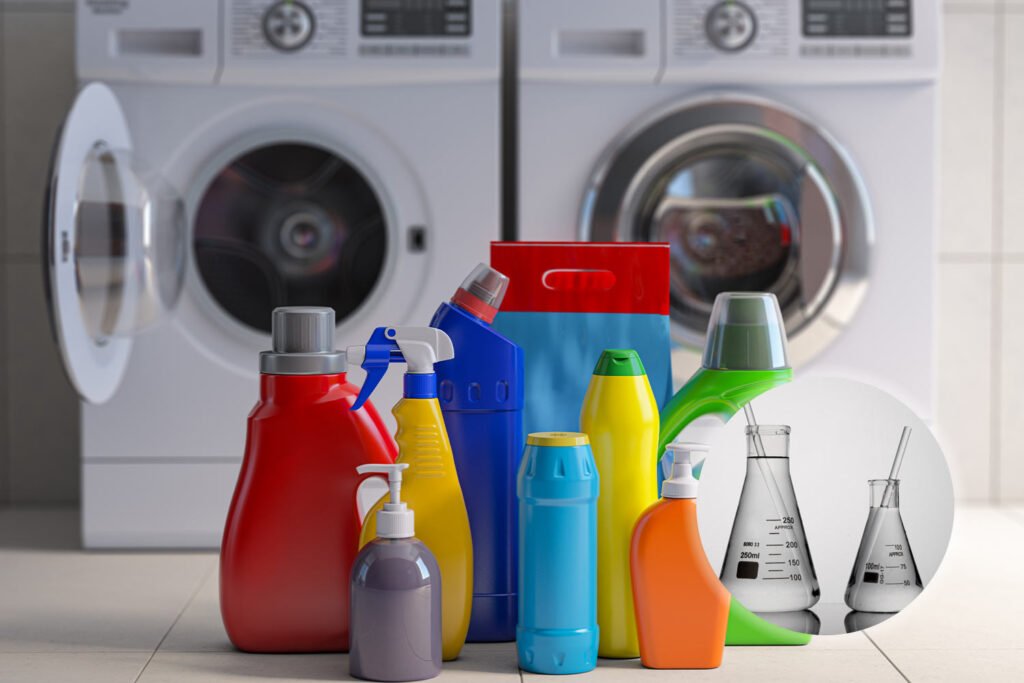序章
Natural fatty alcohols have become integral components in the formulation of beauty and personal care products. Sourced from plants and animals, these compounds are prized for their ability to moisturize, emulsify, and stabilize products, making them essential in everything from shampoos to skin creams. This blog explores the journey of natural fatty alcohols from their origins in nature to their applications in beauty products, highlighting their benefits, extraction processes, and roles in various formulations.
Understanding Natural Fatty Alcohols

Natural fatty alcohols are long-chain alcohols derived from natural fats and oils. They are used extensively in the cosmetics and personal care industry due to their non-irritating, emollient properties. These compounds are often sourced from both plant and animal origins, though plant-based sources are more common in the cosmetics industry due to sustainability and consumer preference for vegan products.
What Are Natural Fatty Alcohols?
Fatty alcohols are high molecular weight, long-chain alcohols typically ranging from C8 to C18. They can be saturated or unsaturated and possess a waxy texture. Common examples include cetyl alcohol (C16), stearyl alcohol (C18), and behenyl alcohol (C22).
Sources of Natural Fatty Alcohols
Natural fatty alcohols are primarily derived from:
- 植物油: Such as coconut oil, palm oil, and soybean oil.
- 動物性脂肪: Such as tallow and fish oils.
化学構造と性質
The general formula for fatty alcohols is CH3(CH2)nCH2OH. Their properties include:
- Emolliency: They soften and smooth the skin.
- 安定性: They help stabilize emulsions in creams and lotions.
- Non-Greasy Texture: They provide a non-greasy feel to cosmetic products.
Extraction and Production of Natural Fatty Alcohols
The extraction and production process of natural fatty alcohols is a critical step that determines their purity and suitability for use in beauty products. This section outlines the common methods used for their extraction and production.
Extraction from Plant Sources
Oil Extraction: Oils are extracted from plant sources through mechanical pressing or solvent extraction.
Hydrolysis: The extracted oils are subjected to hydrolysis to break down triglycerides into fatty acids and glycerol.
Hydrogenation: Fatty acids are hydrogenated to convert them into fatty alcohols.
Extraction from Animal Sources
Rendering: Animal fats are rendered to separate fat from other tissues.
Hydrolysis: Similar to plant oils, the fats are hydrolyzed to produce fatty acids.
Hydrogenation: Fatty acids are hydrogenated to yield fatty alcohols.
Purification Processes
Purification involves distillation and crystallization to remove impurities and ensure the fatty alcohols meet the required cosmetic grade standards.
環境への配慮
Sustainability is a major consideration in the extraction process. The use of renewable plant sources and eco-friendly extraction methods is encouraged to minimize environmental impact.
Applications of Natural Fatty Alcohols in Beauty Products
Natural fatty alcohols play various roles in beauty products, contributing to their texture, stability, and efficacy. This section explores the different applications of these compounds in various cosmetic formulations.
Emollients and Moisturizers
Fatty alcohols are excellent emollients, providing a smooth and soft feel to the skin. They are used in:
- クリームとローション: To impart a moisturizing effect.
- Lip Balms: For their smoothing properties.
Emulsifiers and Thickeners
Fatty alcohols act as emulsifiers and thickeners, helping to blend oil and water components in products such as:
- Shampoos and Conditioners: To ensure a stable mixture.
- Face Creams: To create a consistent and thick texture.
Surfactants
Some fatty alcohols serve as surfactants, aiding in the cleaning process by lowering the surface tension of water. They are found in:
- Cleansers and Body Washes: To help remove dirt and oil from the skin.
- シャンプー: To create a lather and cleanse the scalp effectively.
Stabilizers
Fatty alcohols help stabilize products, preventing the separation of ingredients over time. They are essential in:
- Anti-Aging Creams: To maintain the product’s integrity.
- Sun Care Products: To ensure even distribution of active ingredients.
Specialty Products
Fatty alcohols are also used in niche products, such as:
- 補う: To improve spreadability and longevity.
- Hair Styling Products: To provide texture and hold.
Benefits of Using Natural Fatty Alcohols
Using natural fatty alcohols in beauty products offers several advantages, both for consumers and manufacturers. Here are the key benefits:
Skin-Friendly
Natural fatty alcohols are gentle on the skin, making them suitable for sensitive skin types. They help in maintaining the skin’s natural moisture barrier without causing irritation.
Sustainable and Renewable
When sourced responsibly, plant-derived fatty alcohols are sustainable and renewable, aligning with the growing consumer demand for eco-friendly and vegan beauty products.
Versatile and Functional
These compounds offer multifunctional benefits, serving as emollients, emulsifiers, thickeners, and stabilizers, thus enhancing the overall performance of cosmetic formulations.
Cost-Effective
Natural fatty alcohols are relatively cost-effective compared to synthetic alternatives, making them a viable option for manufacturers looking to balance performance and budget.
Biodegradable
Being biodegradable, natural fatty alcohols are environmentally friendly, reducing the ecological footprint of beauty products.
Comparing Natural Fatty Alcohols in Beauty Products

To better understand the use of different natural fatty alcohols in beauty products, the following table compares some common types based on their properties and applications:
| 脂肪アルコール | Carbon Chain Length | ソース | Primary Use | Benefits | Common Products |
|---|---|---|---|---|---|
| セチルアルコール | C16 | Coconut/Palm Oil | Emollient, Emulsifier | Moisturizing, Thickening | Creams, Lotions, Hair Conditioners |
| ステアリルアルコール | C18 | ヤシ油 | Emollient, Stabilizer | Softening, Stabilizing | Body Washes, Shampoos |
| ベヘニルアルコール | C22 | Rapeseed Oil | Thickener, Emulsifier | Thickening, Emulsifying | Anti-Aging Creams, Sunscreens |
| セテアリルアルコール | C16-C18 | Coconut/Palm Oil | Emulsifier, Stabilizer | Blend of cetyl and stearyl alcohols for combined benefits | Moisturizers, Conditioners |
Analysis of Common Fatty Alcohols
セチルアルコール
- 長所: Excellent moisturizing properties, widely used.
- 短所: Derived from palm oil, which has environmental concerns unless sustainably sourced.
ステアリルアルコール
- 長所: Provides a smooth, non-greasy texture.
- 短所: May require blending with other ingredients for optimal stability.
ベヘニルアルコール
- 長所: Superior thickening properties, ideal for high-viscosity products.
- 短所: More expensive than shorter-chain alcohols.
セテアリルアルコール
- 長所: Combines benefits of cetyl and stearyl alcohols, versatile.
- 短所: Can be difficult to source sustainably.
結論
Natural fatty alcohols are indispensable in the formulation of beauty and personal care products. Their multifunctional properties, sustainability, and skin-friendly nature make them ideal for a wide range of applications. By understanding their origins, extraction processes, and roles in cosmetic formulations, manufacturers can create effective, environmentally responsible products that meet consumer demands. As the beauty industry continues to evolve, the importance of natural, sustainable ingredients like fatty alcohols will only grow.
よくある質問
What are natural fatty alcohols?
Natural fatty alcohols are long-chain alcohols derived from natural fats and oils, commonly used in cosmetics for their emollient, emulsifying, and stabilizing properties.
How are natural fatty alcohols extracted?
They are extracted from plant oils or animal fats through processes like hydrolysis and hydrogenation, followed by purification to achieve cosmetic grade quality.
Why are natural fatty alcohols preferred in beauty products?
They are preferred due to their skin-friendly nature, sustainability, multifunctionality, and cost-effectiveness compared to synthetic alternatives.
Can natural fatty alcohols cause skin irritation?
Generally, natural fatty alcohols are non-irritating and suitable for sensitive skin, but it is always recommended to patch test new products.
Are all natural fatty alcohols sustainable?
While plant-derived fatty alcohols can be sustainable, it depends on the sourcing practices. Responsibly sourced oils, especially those certified sustainable, are preferable.
What is the difference between cetyl alcohol and stearyl alcohol?
Cetyl alcohol has a carbon chain length of 16, making it a good emollient and thickener, whereas stearyl alcohol has a chain length of 18, providing stability and a smooth texture.


